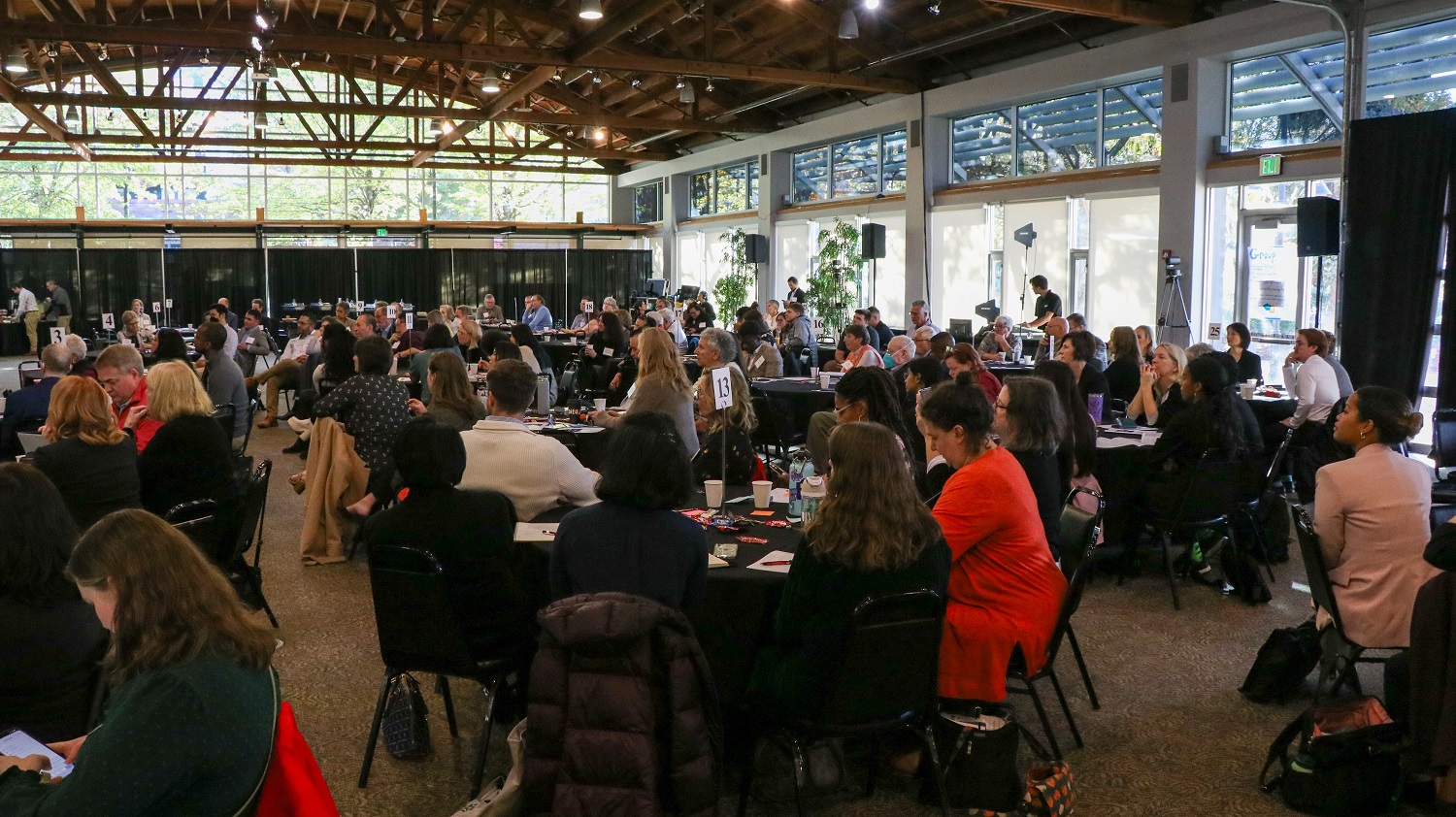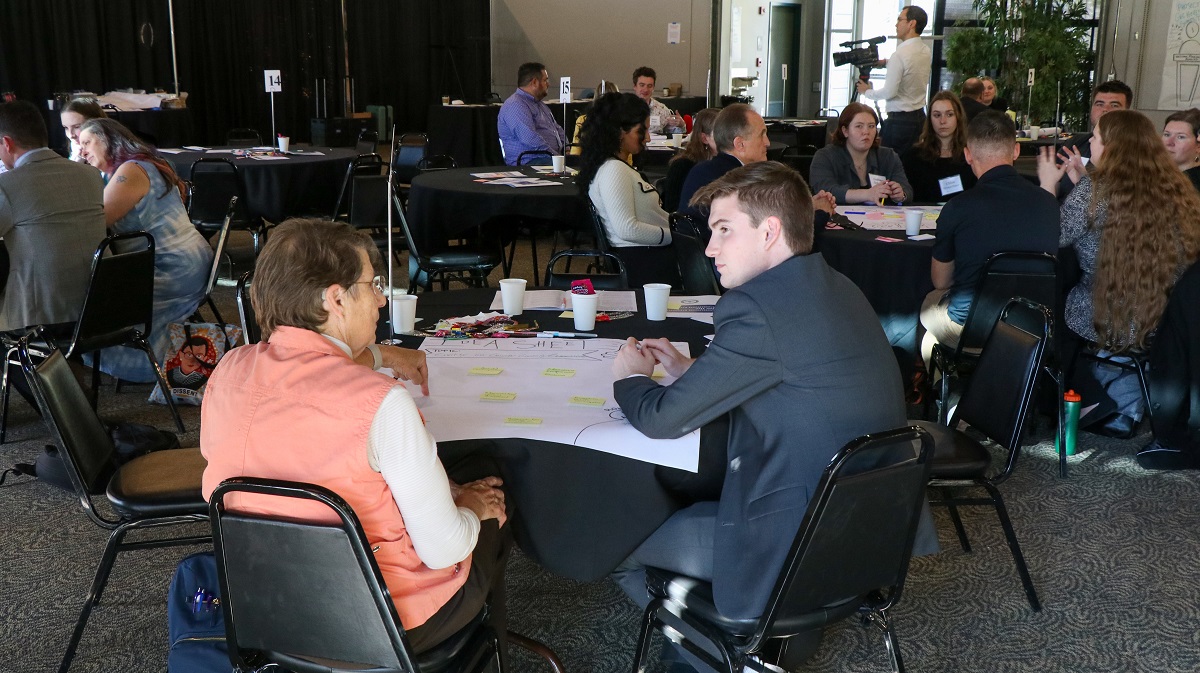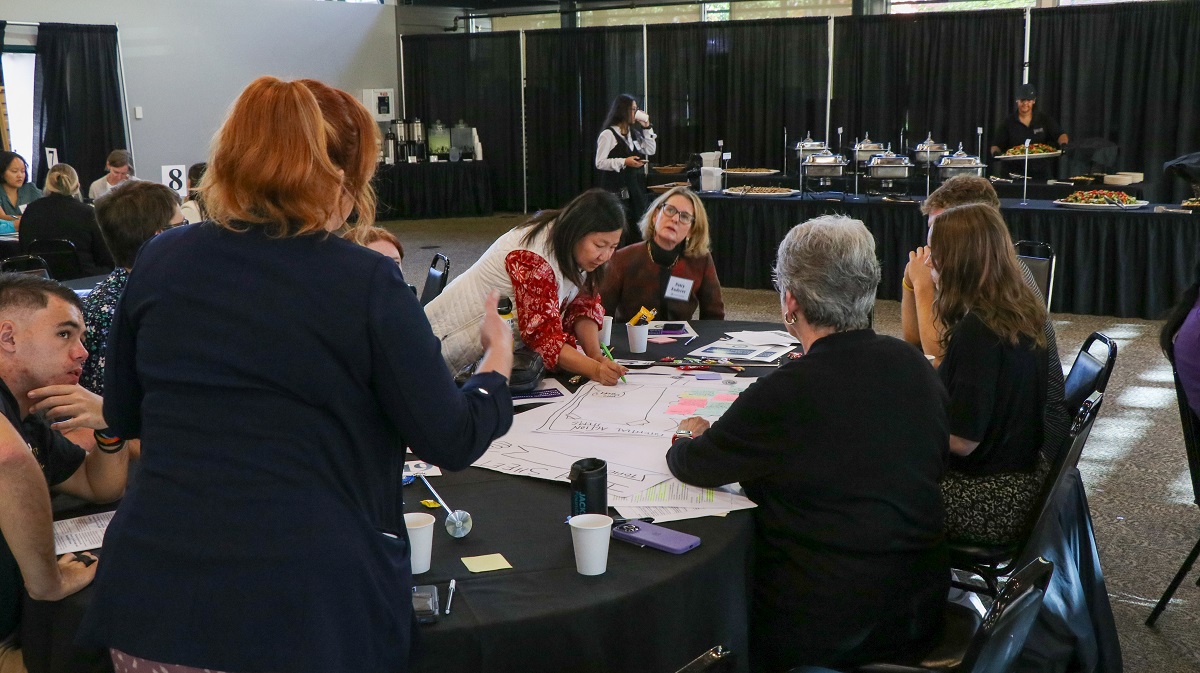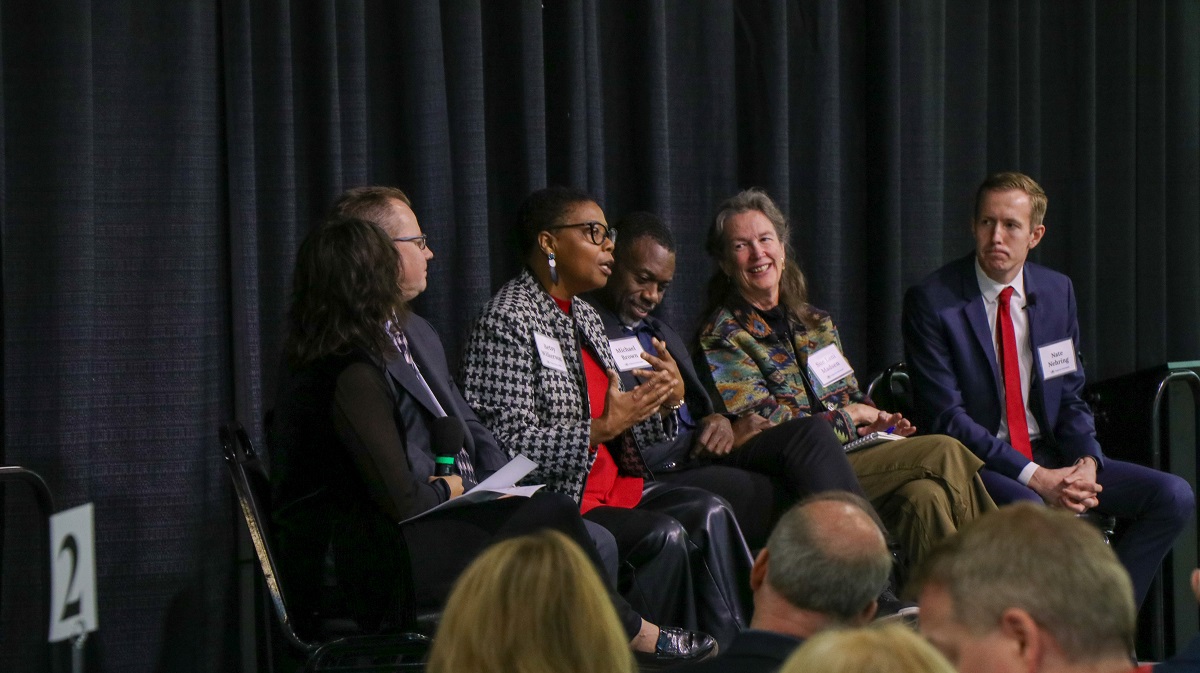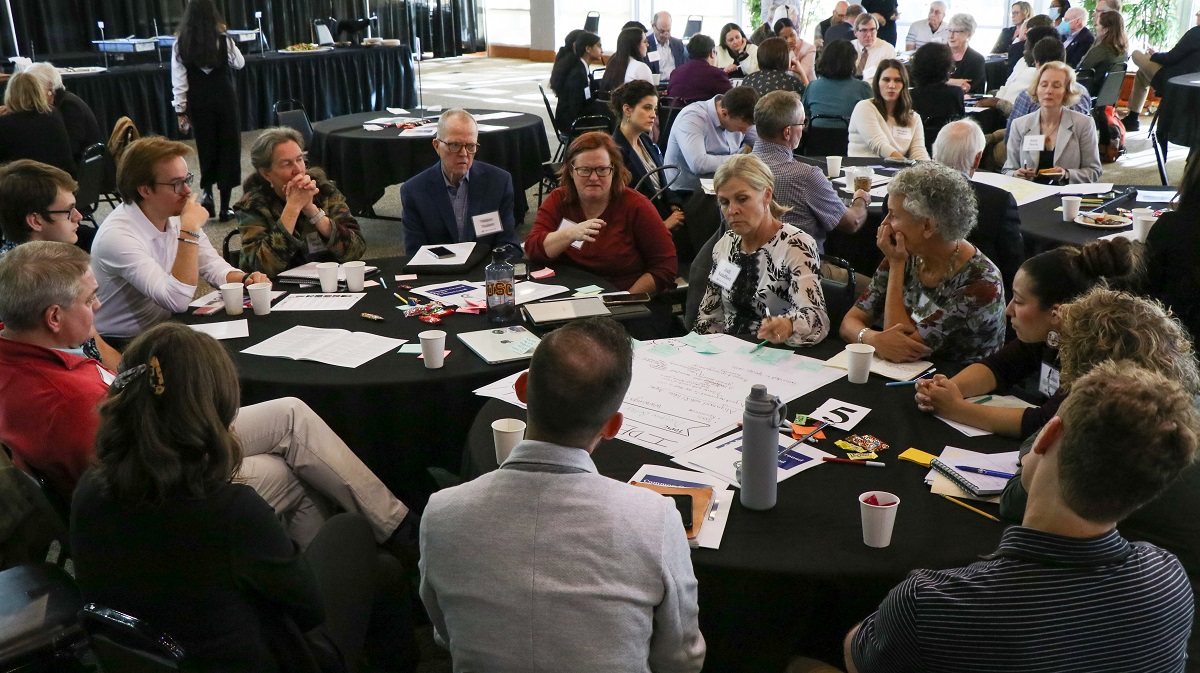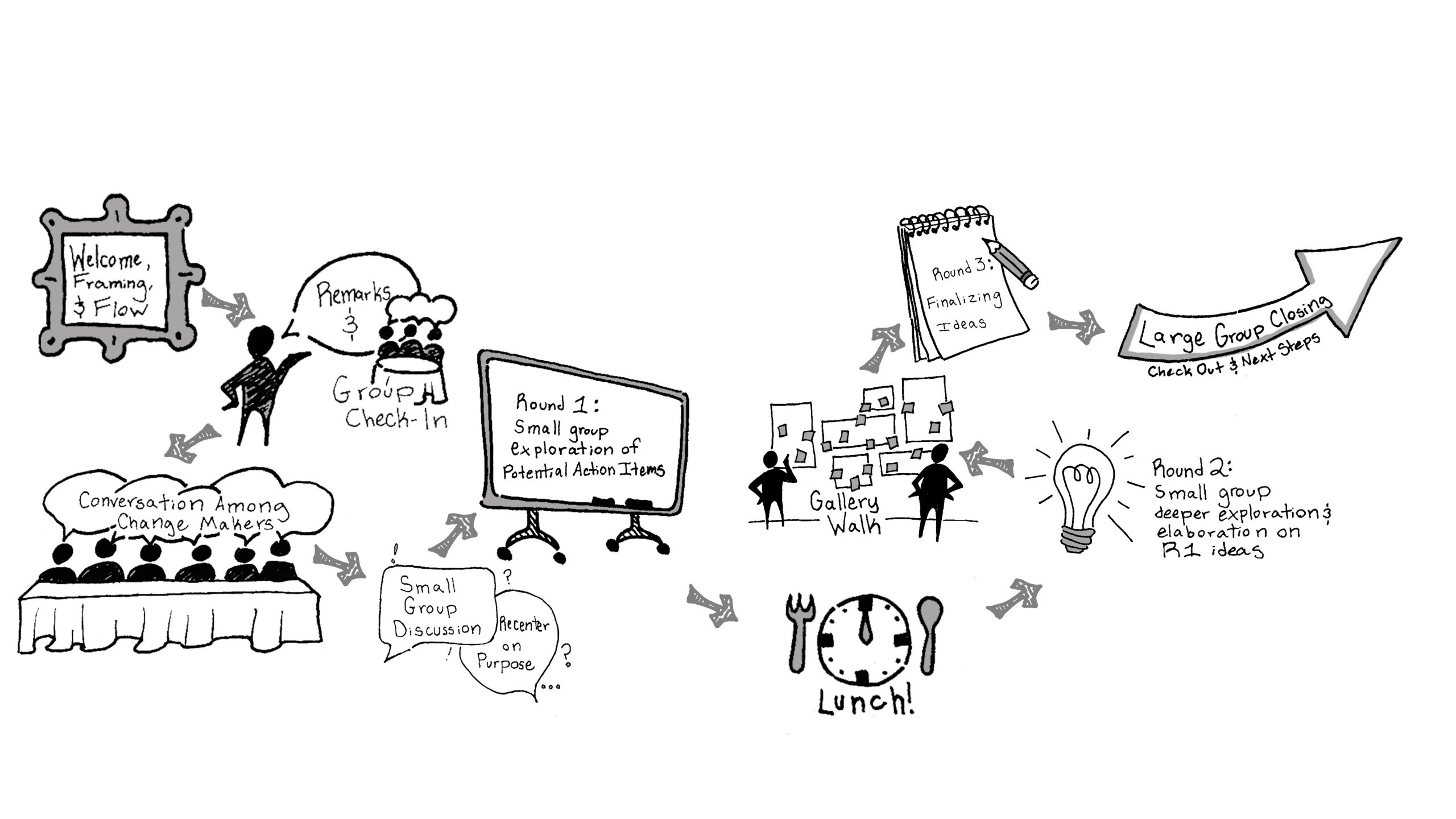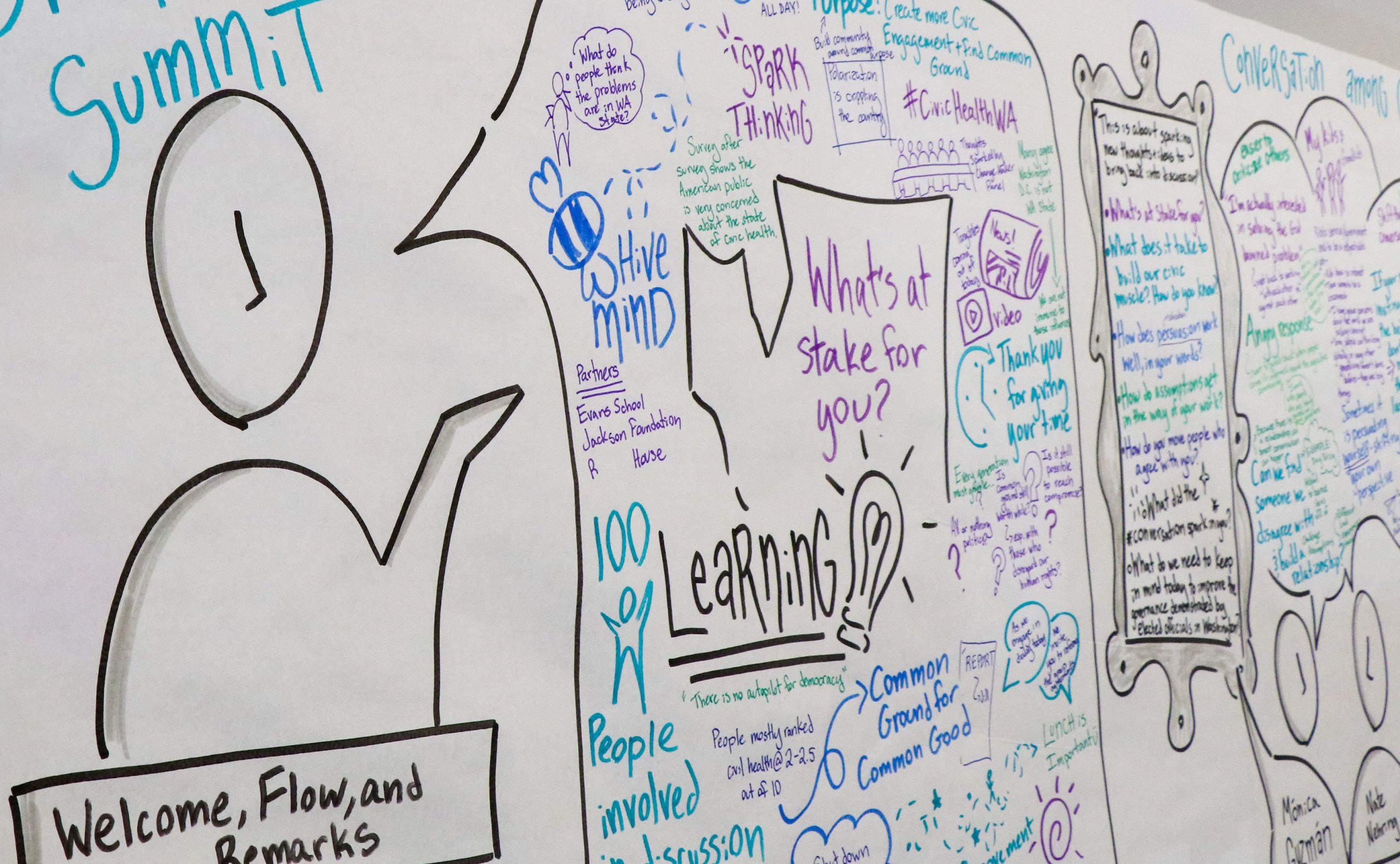The Project for Civic Health was initiated by the Office of the Lieutenant Governor. Lieutenant Governor Denny Heck invited the Henry M. Jackson Foundation, the University of Washington Evans School of Public Policy and Government, and the William D. Ruckelshaus Center, a joint center of Washington State University and the University of Washington, to collaborate on the design and implementation of the project. The partnership was formed on a shared premise of concern for our democracy’s civic health. The partners agree that this problem is so complex that meaningful progress will require intentional and sustained effort. In other words, this is going to take a while. But we have observed an emphatic willingness to attack the problem, and an inspiring variety of efforts already underway in many Washington communities. So, yes, it may take a while, but we have many reasons to be encouraged.
The Project initially includes two components:
Roundtable Discussions
The Office of the Lieutenant Governor convened a systematic exploration of the nature of the problem, its causes, and possible solutions by undertaking a series of confidential roundtable discussions around Washington State with a diverse set of stakeholders. A contracted author distilled those conversations as well as certain contextual information in the following preliminary report.
This report reflects the views of the participants in the roundtable discussions. It is not intended to represent the views of the project partners. The report will serve as part of the basis for the Project’s second component, a day-long summit.
Read the report: Common Ground for the Common Good.
Civic Health Summit
On October 19, the partners held a day-long summit in which participants engaged in discussions sparked by the report that will be used to make recommendations for sustained action to improve our civic health in the State of Washington.
Read the Civic Health Summit Newsletter
Read the Civic Health Summit Proceedings

